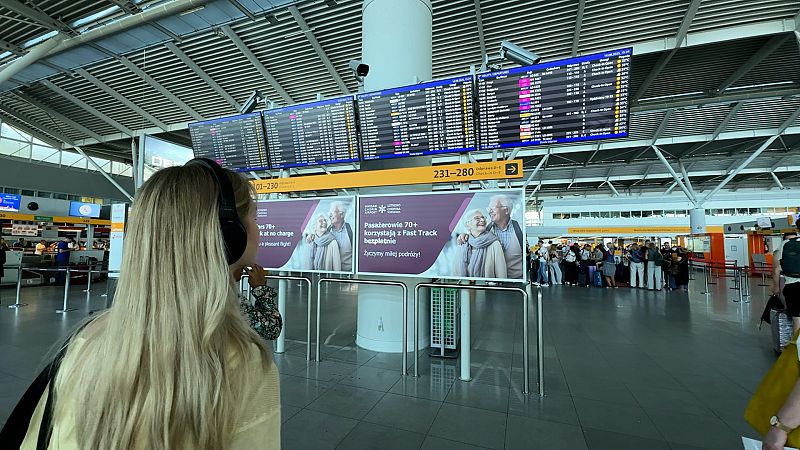
Aviation Industry Grapples with Multiple Pressures Beyond Strike Action
The aviation industry in Europe, and indeed globally, has faced a turbulent year. While strikes involving ground staff, pilots, and air traffic controllers have significantly disrupted travel plans and impacted airline profitability, industry experts emphasize that these labor actions represent only one facet of a much larger and more complex set of challenges.
Key Challenges Facing Airlines Today
Several critical factors are converging to create a challenging environment for airlines worldwide:
-
Airspace Closures: The ongoing conflicts in Ukraine and Israel have resulted in the closure of significant portions of airspace. This forces airlines to reroute flights, leading to increased flight times, higher fuel consumption, and greater congestion in alternative air corridors.
-
Technical Issues with New Engines: Unexpected technical problems affecting new-generation aircraft engines have further complicated airline operations, leading to grounded planes and schedule disruptions.
-
Lingering Effects of the COVID-19 Pandemic: The long-term repercussions of the COVID-19 pandemic continue to reverberate throughout the industry. While passenger numbers are rebounding, the pandemic significantly impacted aircraft production and supply chains.
Aircraft Manufacturing Delays and Capacity Constraints
Boeing and Airbus, the two leading aircraft manufacturers, have struggled to maintain production levels since the onset of the pandemic. Estimates suggest that a substantial number of narrow-body and wide-body aircraft are behind schedule.
This shortfall in new aircraft deliveries has forced airlines to extend the operational life of their existing fleets. Many airlines are using aircraft that are two to three years older than they would have preferred, simply to meet current demand. This situation has created a significant capacity bottleneck, as airline capacity remains below pre-pandemic forecasts despite a surge in passenger demand.
The Role of ACMI Providers in Addressing Capacity Shortages
The current environment has highlighted the importance of Aircraft, Crew, Maintenance, and Insurance (ACMI) service providers. These companies lease aircraft to airlines on a short-term basis, providing them with the flexibility to increase capacity during peak seasons or to cover unexpected maintenance downtime.
By utilizing ACMI services, airlines can avoid the capital expenditure associated with purchasing or long-term leasing additional aircraft. This allows them to efficiently manage their fleets and optimize profitability, particularly during periods of fluctuating demand.
EU Regulations and Their Impact
The European Union's regulatory framework plays a significant role in shaping the operating environment for airlines within the region. While aviation is a highly regulated industry globally, the EU's regulations, particularly those related to safety and sustainability, have a notable impact.
The EU's Sustainable Aviation Fuel (SAF) regulations, which mandate the increased use of cleaner fuels, are viewed by some as a positive step towards reducing the environmental impact of air travel. However, the regulations also present challenges for airlines, as SAF is currently more expensive than traditional jet fuel.
Debates surrounding regulations on minimum hand luggage sizes have also surfaced, raising questions about potential impacts on ticket prices and airline revenue models.
Global Expansion and Strategic Vision
Aviation companies are increasingly looking to expand their global reach to mitigate the effects of seasonality and capitalize on growth opportunities in emerging markets. Establishing a presence in multiple regions allows companies to shift resources and aircraft to areas where demand is highest, ensuring optimal utilization of assets.
Investment in sustainable aviation fuel (SAF) production facilities is also a key element of long-term sustainability strategies. By increasing the availability of SAF, the aviation industry can reduce its reliance on fossil fuels and contribute to a greener future.
The Future of Aviation
Despite the numerous challenges facing the aviation industry, the long-term outlook remains positive. Passenger numbers are expected to continue to grow, driven by increasing global connectivity and rising disposable incomes.
To meet this growing demand, airlines will need to invest in new aircraft, improve operational efficiency, and embrace sustainable practices. Collaboration between airlines, manufacturers, and regulatory bodies will be essential to navigate the challenges and ensure a sustainable and prosperous future for the aviation industry.


No comments:
Post a Comment